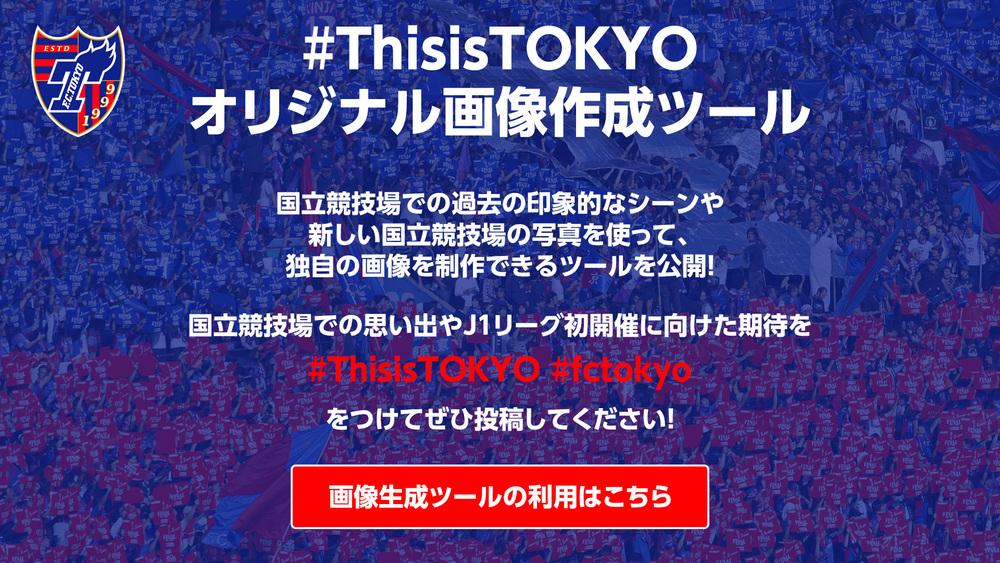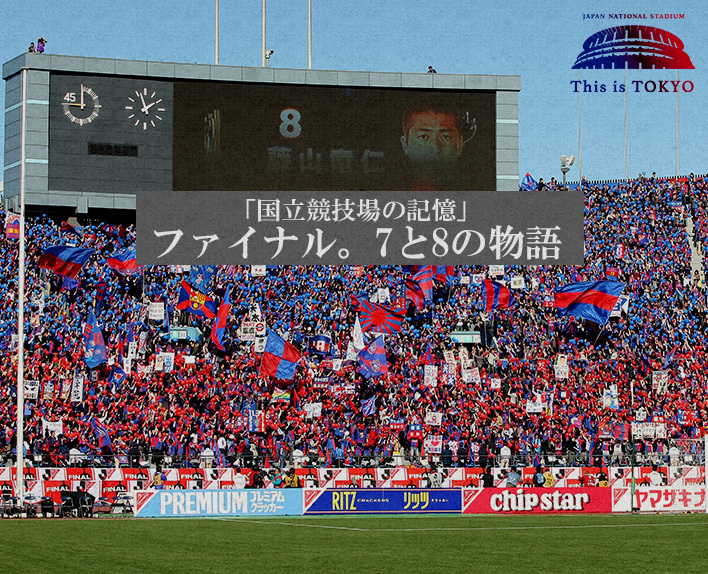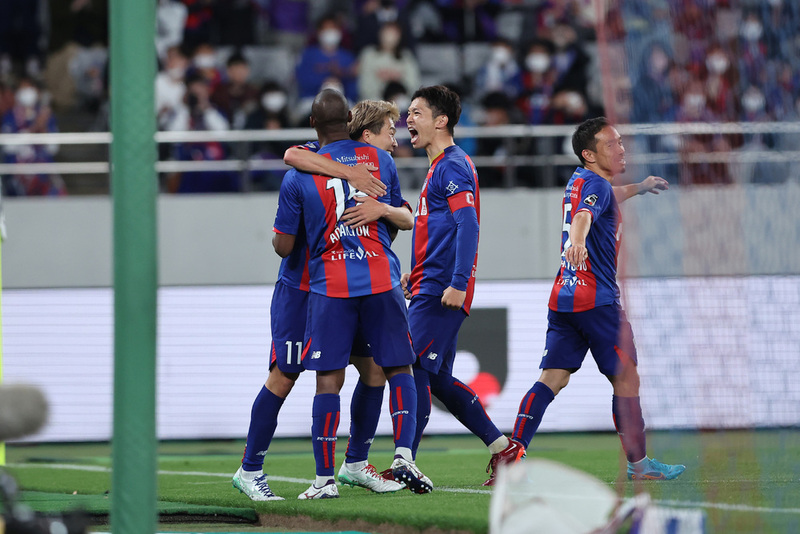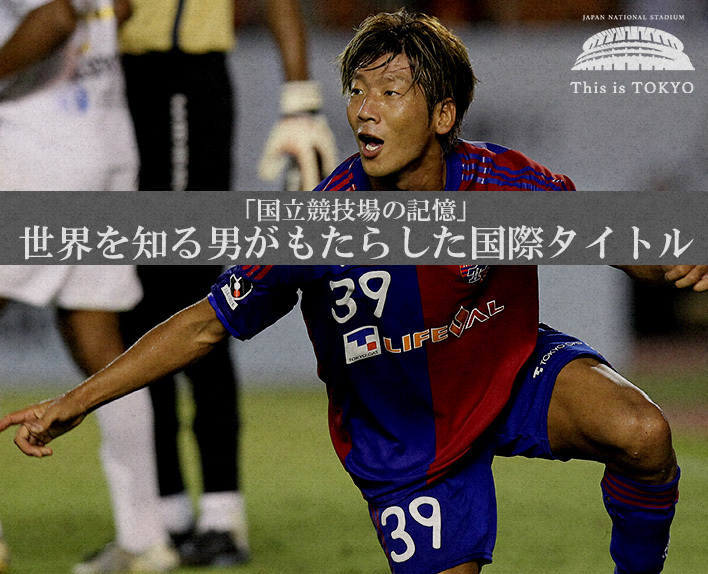Finally, on April 29 (Friday, holiday), Tokyo will compete in the first J-League match at the Japan National Stadium.
Before the renovation of the National Stadium, many official matches were held since the first year of joining the J-League. There were memorable super plays and impactful events. Since the long-awaited title was won, Tokyo has won all titles at the National Stadium, symbolizing the deep connection between Tokyo and the National Stadium.
Our National.
Before taking a new step at National, let's look back at the footprints and memories left at National along with photos from that time.
2009 Final. The Story of 7 and 8
【Match Information】
2009 J.League Yamazaki Nabisco Cup Final Round
FC Tokyo 2-0 Kawasaki Frontale
I cannot forget the tears of regret I saw amidst the voices of joy.
It was also part of the story of jersey numbers 7 and 8. Satoru ASARI and Ryuji FUJIYAMA. They have walked together, relying on each other from the Tokyo Gas Football Club. In the 2009 Yamazaki Nabisco Cup, which was their last year in Tokyo, the team celebrated its second victory in five years.
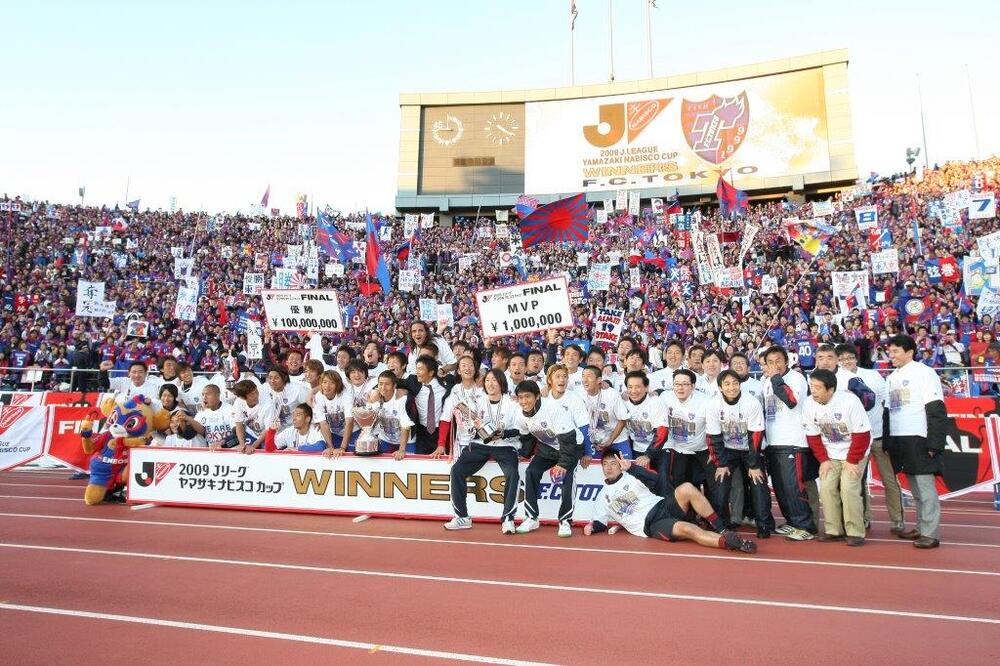
It was right after the Final Round. I stopped Asari, who was heading to the parking lot at National. At first, he said, "I think the team has matured more than five years ago. The way we played was fitting for a team competing for the championship..." He was speaking as usual. However, there seemed to be something gradually welling up inside him. There were no words that followed, and the forced smile was no longer there.
"I wanted to stand there with Fuji-san."
Every time I remember that faint trembling voice and that expression, my heart still tightens.
In the second year of the Jofuku regime, the team matured with each match. By the time summer passed, it was surprising to hear the usually cautious Yuhei TOKUNAGA say, "I don't feel like we can lose to any opponent." Such was the overwhelming sense of invincibility. However, gradually, that momentum began to falter. Cabore, who had instilled fear in opponents at an astonishing speed, transferred to the Middle East, leaving behind a legacy of reaching the Nabisco Cup Final due to team circumstances. Additionally, an incident occurred where Naohiro ISHIKAWA, who had been scoring goals in abundance, suffered a long-term injury. The pre-match predictions for the Final Round were not particularly favorable for Kawasaki Frontale.
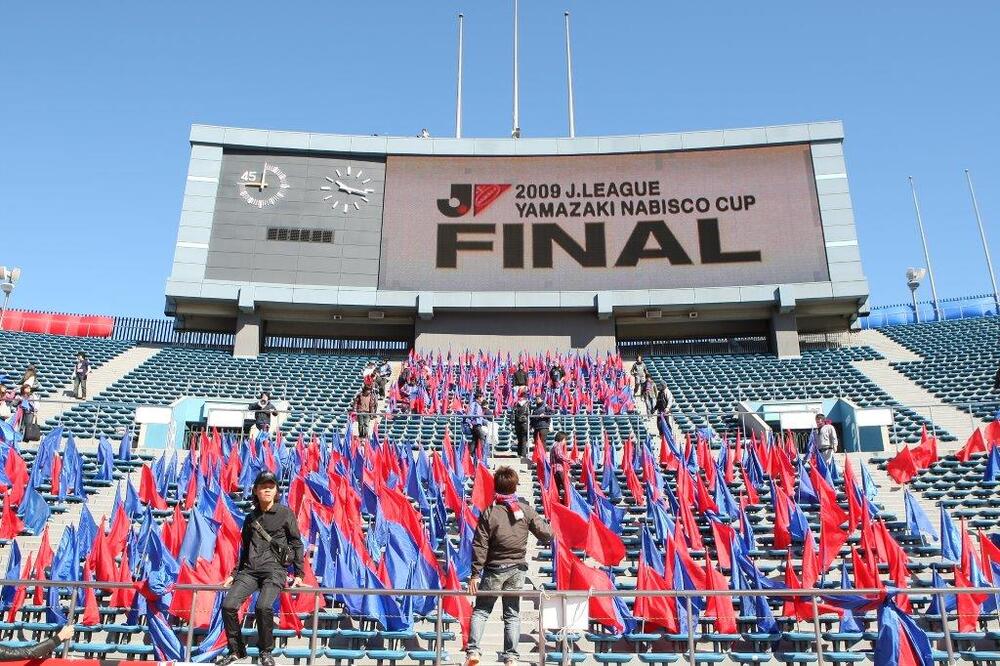
In the lead-up to this crucial match, the club announced the departure of Fujiyama, a long-time contributor since its establishment, and the retirement of Asari. Due to the rise of high school rookie Takuji YONEMOTO, Asari had significantly reduced playing time. While this was a factor, the decision was influenced by the sentiment that, "Because of that Nabisco Final Round, we decided to announce our retirement early and talked about bringing momentum to the team together with Fuji-san" (Asari).
However, Asari was also excluded from the bench members for the Final Round. On the day before the match, when he was informed of this, Asari crossed the fan service zone and headed straight to the locker room. There, Fujiyama, alone with Asari, decided to wear the uniform of his sobbing teammate in order to face the Final Round the next day.
The Final Round, filled with various emotions, kicked off in the 22nd minute of the first half with a brilliant middle shot from Yonemoto, who had spoken of his goals after witnessing not only Asari's play but also his daily attitude before turning professional. The irregular trajectory that burst forth from his powerful right foot deflected off Kawashima Eiji's hand and pierced the goal net.
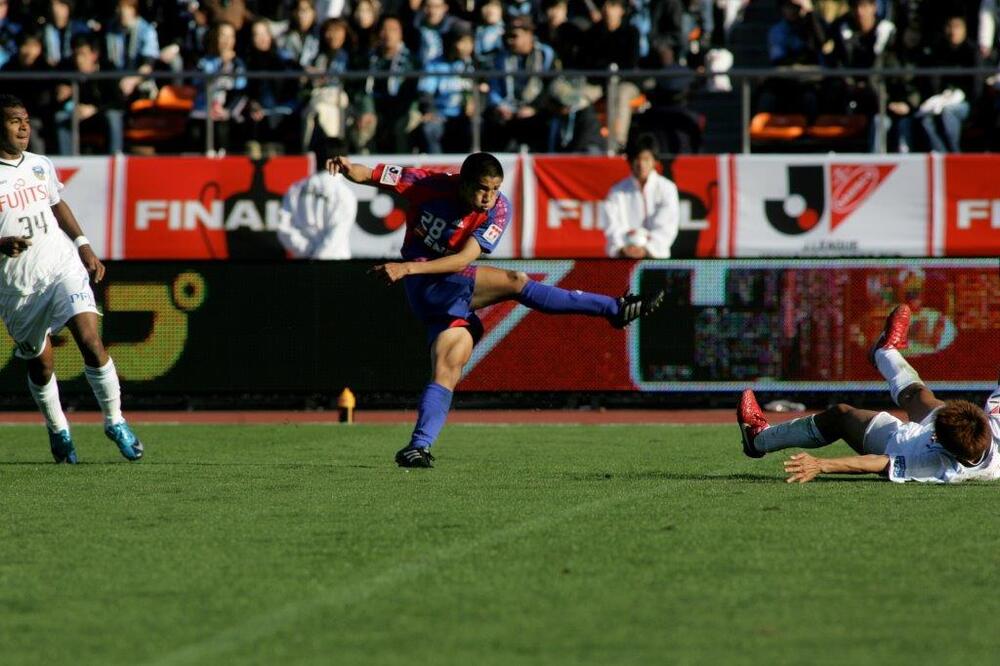
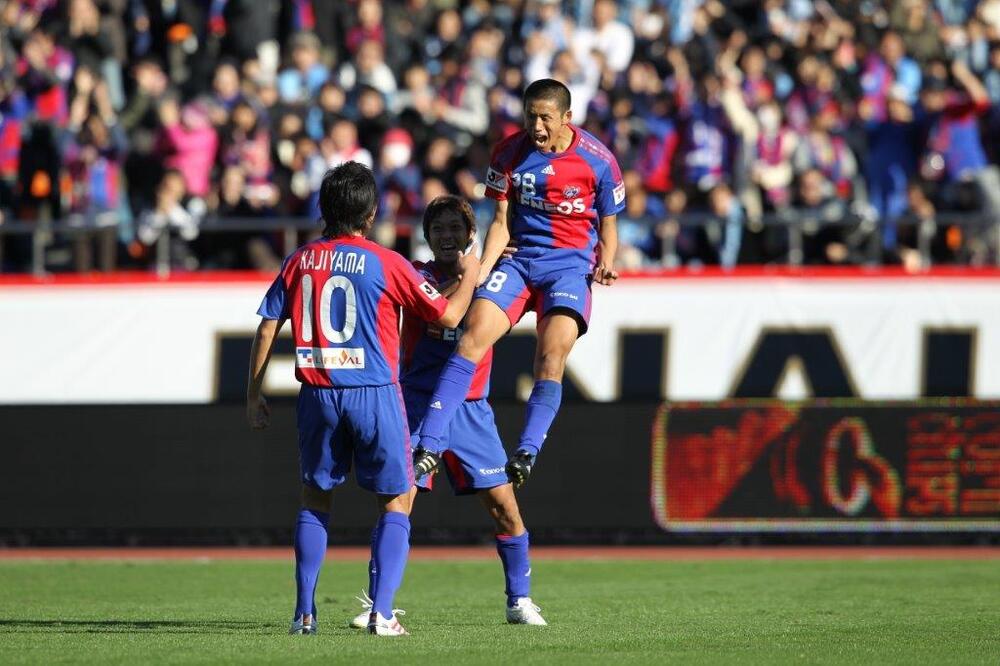
After that, they withstood Kawasaki's fierce attack, and in the 14th minute of the second half, "National Man" Hirayama scored an additional goal to secure the victory.
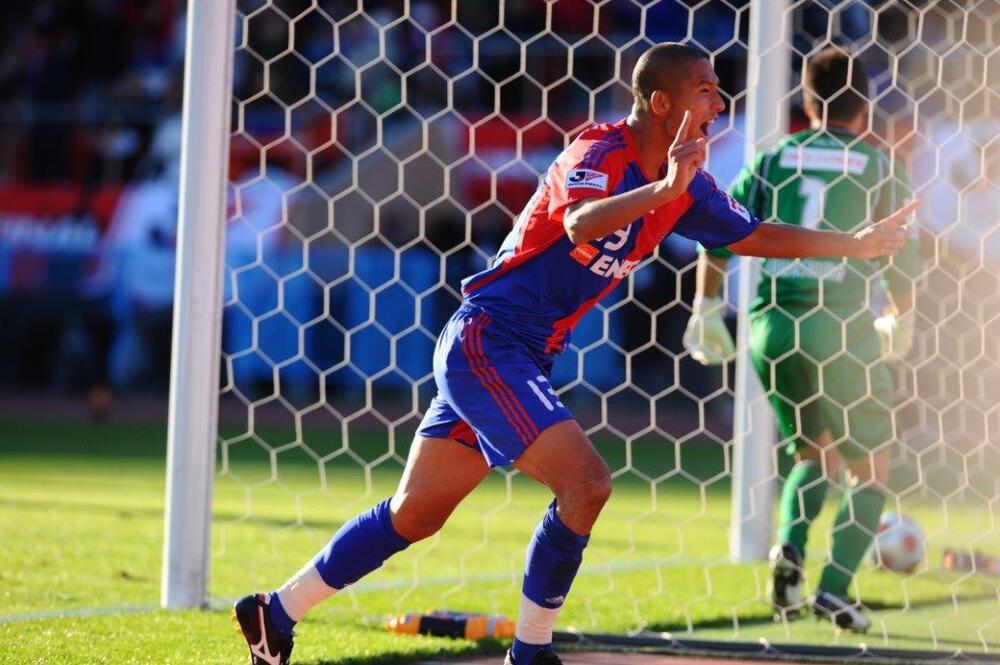
At the joyous award ceremony, Mr. Tokyo (self-proclaimed) will take the stage in the number 7 uniform. This is likely one of the episodes that reflects the strength of their feelings.
Retired player Asari voluntarily transferred his long-held number 7 to Yonemoto. Even though rivals came to his position almost every year, he never complained and steadily built up 13 years of active career through hard work. That might have been the only selfish act Asari made for the club in the end.
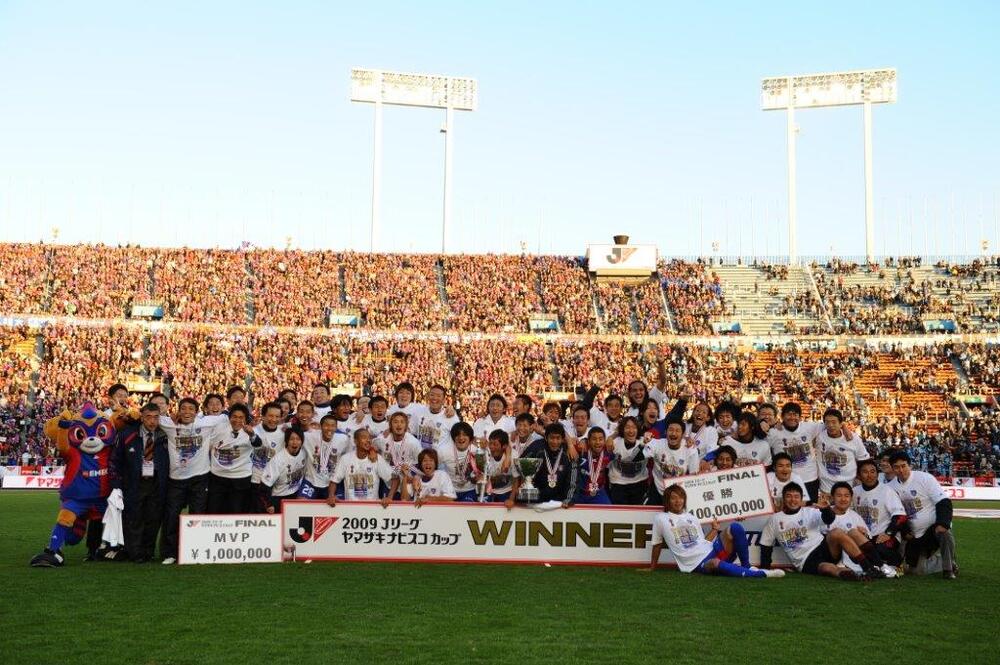
Remembering that Yone was very humbled at the time, and later spoke proudly about this moment, makes my heart swell again. This is the only instance in FC Tokyo's history where the jersey number was passed down at the request of the predecessor.
Text by Kohei Baba (Freelance Writer)

